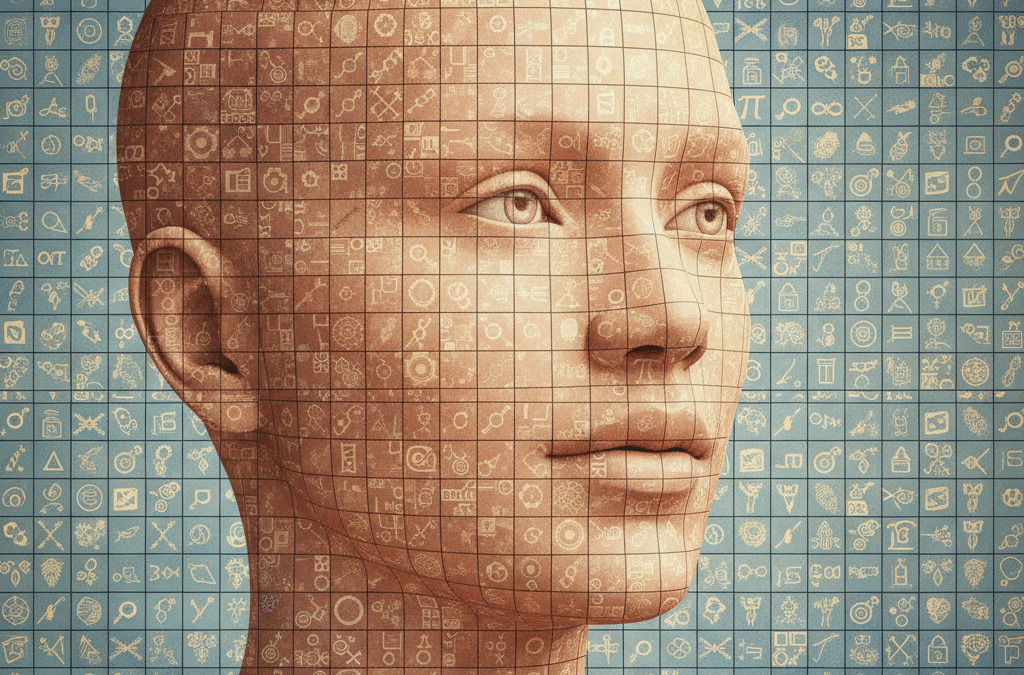We’re typically reminded that we’re unique, one of a kind, distinct from everyone who’s ever lived. It’s a comforting idea, one which gives value to our lives and makes us expressive. We’re encouraged as kids to “be ourselves,” to be honest, to be unique. But philosophy makes us wonder if individuality is real or if it’s an illusion created by patterns that recursively trace themselves through human experience.
Biologically, the case for uniqueness begins to break down. Human beings are over 99% genetically similar to each other. Even those things which feel so intimate (eye color, height, temperament) are recombinations of gene potential that have happened a thousand times in a few centuries. If individuality is complete uniqueness, then perhaps we are less unique than we think. We are mosaics made up of universal pieces, not entirely original compositions.
Socially and culturally, the same thing applies. We learn who we are from language, tradition, and community. Language that we use has been developed prior to our birth. The ideals that we believe in are based on larger systems of thought. Even our taste, fashion, and personality are likely to be patterned by peers, history, and media. Individuality, in a sense, is more one of organization than invention, how shared elements are combined in slightly varying combinations.
Philosophers grappled with this tension for a thousand years. Existentialists like Jean-Paul Sartre thought we are “condemned to be free,” implying the power to shape ourselves by choice. This assumes an authenticity, a freedom to make our existence independent of pre-designed forms. But structuralists and determinists respond that our choices are never really ours alone, unconscious, social, and biological forces shape them. Individuality is maybe only the reassembly of patterns we’ve been provided.
Psychology supplies a further layer of complexity. Carl Jung theorized that there are archetypes: shared symbols and characters that appear again and again in myths, dreams, and works of art. The hero, the shadow, the mother, these keep cropping up in cultures to the left and to the right and point to a lot of internal life operating in communal patterns. If our minds are organized by patterns of the archetypes, then even what we narrate about who we are isn’t precisely personal. Individuality is thus more a question of how we enact universal roles in a given situation than of how we create ourselves out of whole cloth. But to slice individuality back to raw illusion appears insufficient.
Each of us does, after all, live our own life. Someone else doesn’t occupy our own time and space, with our own individual mix of influences, relationships, and experiences. Even if the pieces of identity are shared, they are arranged differently. No two snowflakes can be found even though they’re subject to the same physical laws. Maybe individuality is not in opposition to pattern but in the unrepeatability of patterns interwoven in a life. Individuality also possesses a moral quality.
If we were only replaceable units of mankind, can there be personal responsibility, creativity, or dignity? Human rights are based on an assumption that every human being possesses inherent value, and ought not to be treated like a general category. To discard individuality as a group has the potential to permit us to be nothing but photocopies of others. While individuality is, in a way, constructed, its acknowledgment plays an integral part in achieving freedom, worth, and meaning. Maybe the answer is to accept individuality as an inconsistency. We are universal and individual. Like scale notes, we are similar in form, but each has a different melody in our own lives. Our individuality is relative, it is what emerges from the specific combination, timing, and occurrence of patterns which themselves are generic. We are resounding of the universal song of humanity, but each uniquely resonates.
So are we truly one-of-a-kind? Literally, no. We’re DNA recombinations, archetypes, culture, and history. But in the recombination is something that can’t be duplicated: the subjective experience of being this self, here and now. The illusion of uniqueness is no illusion but a reality from the inside out, subjective, fragile, and powerfully real to the one having it.
